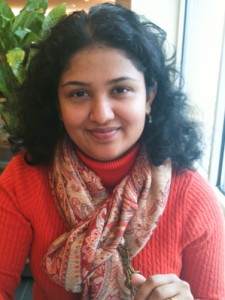
Resident clinics are half days of outpatient care focusing on a patient’s long-term care over a three-year residency period. Most of these are Medicare/Medicaid patients with complex medical conditions. There is a lot of paperwork and documentation associated with their visits and, as a result, some no-shows when patients do not show up for their appointments. About six to seven patients are scheduled for each afternoon which leaves little time to establish a good physician-patient relationship. That’s why the following account of a patient whose primary care provider changed his perspective of medicine is so unique.
Michael Fairnot got out of his car at the Burgdorf Health Center in Hartford and walked toward his primary care provider’s office. He had been experiencing right knee pain for almost two weeks now and wanted to see his PCP for the same.
Dr. Raghesh Varot Kangath, a young physician doing his third year of medical residency at the University of Connecticut School of Medicine, rotated on Tuesday afternoons at the Burgdorf. Dr. Kangath had spent a busy morning working at a local hospital’s critical care unit and drove to Burgdorf for his afternoon outpatient continuity clinic. He met Michael waiting in the patient’s lounge and shook his hand. “I am in safe hands,” Michael reassured himself. He had been seeing Dr. Kangath for the past two years and had a good relationship with him.

Several minutes later, the nurse technician brought Michael into the exam room and he described his knee pain to Dr.Kangath. Many physicians would have chalked it up to old age and sent Michael on his way. But based on his prior visits with Michael, Dr. Kangath felt his complaints should be taken seriously.
Dr. Kangath spent the next 20 minutes asking questions, tapping lightly on Michael’s knee, checking his gait and performing maneuvers on the knee. Convinced that the joint had fluid in it, he ran the options over in his mind – getting an orthopaedic or rheumatology appointment would take a couple of months; an emergency room visit was unappealing to the patient who had trusted him to take care of the issue; and there were five more patients waiting to be seen. Michael and Dr. Kangath had an extensive discussion about the issue and they decided Michael needed an x-ray. It showed what the yound doctor had suspected. Michael’s pain was caused by degenerative arthritis along with fluid in his knee.
Dr. Kangath briefed his attending physician, Dr. Vom Eigen, about the situation. He assured Dr. Eigen that he was confident about performing the knee aspiration procedure thanks to the training he received from UConn’s orthopaedic specialists at the New England Musculoskeletal Institute. With Dr. Eigen by his side, Dr. Kangath explained the procedure to Michael. He properly positioned the knee and cleaned the area with antiseptic solution. While preparing the syringe for aspiration, he prayed silently for success. The procedure lasted three minutes and removed approximately 25 milliliters of fluid from Michael’s knee.
In the days that followed, Dr. Kangath arranged for Michael to be seen by a UConn orthopaedist and called him every day to check on his health and make sure he was improving after the aspiration.
Even though Dr. Kangath’s schedule was overbooked for the next several months, he made time for Michael in between his regularly scheduled patients. Needless to say, Michael was moved by this kind gesture.
On his next official visit to the PCP in a month, he remarked. “I have lost a dear son to an accident in his youth, my doctor’s caring attitude reminded me of my son and what he would have done for me in this situation.” Michael continued, “I have met several doctors in my life, but none like my Dr. K. He traveled an extra mile to ensure that I felt secure and was safe at home. More than his medical care, I was deeply moved by his caring attitude. I would like him to stay back and continue to be my doctor but I understand he needs to move on after training. I wish him luck and success to pursue the career of his choice.”
Dr. Kangath frames his thoughts this way. “I knew what was expected of me at that time. I had the choice of referring the patient to a specialist but it would have been weeks before he would get an appointment. Michael refused to visit the emergency room so the alternative was to tap the knee myself. I debated back and forth about the plan because it meant staying extra hours that day to finish my schedule and to complete the procedure. Assuming responsibility for the patient for the days after the procedure was difficult because my clinic schedule was only once a week. It was more from empathy and an effort to keep up with Micheal’s expectations that I finally decided to give it a try. I was also backed by the faculty at Burgdorf and my training at the New England Musculoskeletal Institute.”
Michael is currently undergoing continued care from an orthopaedist and his primary care provider. Dr Raghesh Kangath is moving on to start his fellowship in infectious diseases at Texas A & M University.
Experiences like this are the driving force for medical residents to combat the grueling hours of work and studies and to reach our common goal of completing the training successfully. These stories remind us to remain humane in spite of battling with textbooks, dissecting bodies, and dealing with difficult patients and families. We can one day look back and tell ourselves, “No matter what sacrifices we made physically, emotionally and financially for training in medicine, it is worth it after all.”
Follow the UConn Health Center on Facebook, Twitter and YouTube.



